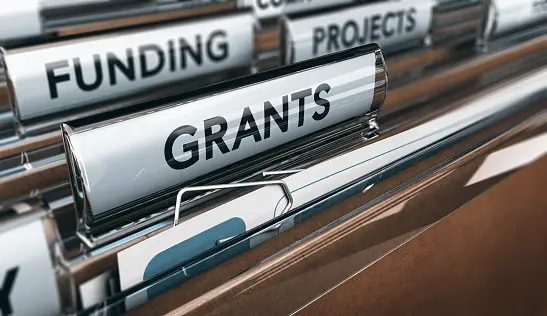How to Find Grants: An In-depth Guide.
Navigating the labyrinth of financial funding can often feel akin to a treasure hunt, where the elusive ‘X’ marks the spot of plentiful grants waiting to be unearthed.
And the most daunting question is: How to find grants that are a perfect match for your needs? The pursuit of this ‘X’ is often shrouded in uncertainty and inexperience, but fear not!
This comprehensive guide is your secret map, designed to lead you step by step on your journey to the world of grants.
From understanding the significance of grants to identifying the right platforms for your search, this guide has got you covered. You’ll learn not just how to find and apply for grants, but also how to construct compelling applications that increase your chances of success. Sprinkled throughout are vital keywords to keep your quest focused, and practical examples to illuminate your path.
So, are you ready to embark on an enlightening adventure to secure the funds that could potentially catapult your project, business, or non-profit to new heights?
Let’s set sail and chart your course to the treasure trove of grants, unearthing opportunities and prosperity along the way!
Understanding Grants
Before we delve into the nitty-gritty of finding grants, let’s first define what they are. A grant is a sum of money given by a government entity, corporation, or foundation, typically to non-profit entities, educational institutions, businesses, or individuals to fund specific projects or initiatives. Unlike loans, grants do not need to be repaid, making them an excellent financial resource.
Why are Grants Important?
Grants play a significant role in the economy by providing funds that fuel research, innovation, social projects, and small businesses. They help fill the gap where other financial resources may not be readily available, thereby encouraging the execution of beneficial projects that might otherwise remain unrealized.
Where to Find Grants
Grants can be found in numerous places, and the best sources often depend on who is seeking the grant. Here are some common sources:
1. Government Grants: Both federal and state governments offer grants for a wide variety of purposes. The U.S. government’s official website for federal grants, Grants.gov, is a great place to start.
2. Foundation Directory Online (FDO): The FDO provides a comprehensive database of private foundations that provide grants.
3. Grantspace: A service of the Foundation Center, Grantspace offers information about grants and other aspects of nonprofit funding.
4. Local Community Foundations: Local foundations often provide grants for community-focused projects and small businesses.
5. Corporate Grants: Many large corporations have grant programs to support initiatives in communities where they operate.
How to Search Effectively for Grants
Searching for grants can be time-consuming, but the following tips can make the process more efficient:
- Use a Grant Database: Databases like Grants.gov and Foundation Directory Online can help you filter grants by location, sector, and more.
- Specific Keyword Searches: Tailor your searches by using specific keywords related to your project. For instance, if you are seeking funding for environmental education, use keywords like “environmental education grants”.
- Check Eligibility Requirements: Always check the eligibility requirements before applying to ensure your project or organization qualifies for the grant.Grant Database, Keyword Search, Eligibility Requirements
Applying for Grants
Once you have identified potential grants, the next step is to apply. Each grant will have its own application process and requirements, so it is crucial to pay attention to details. Here’s a general outline of the process:
1. Preparation: Understand the grant requirements, collect necessary documents (financial statements, project proposals, etc.), and identify your project’s goals, timeline, and budget.
2. Proposal Writing: Craft a compelling proposal that outlines your project, its benefits, and why it deserves funding. Be concise, clear, and persuasive.
3. Submission: Follow the grant submission guidelines. This might involve online submission or mailing the proposal.
4. Follow-up: After submission, follow up as indicated in the grant guidelines. It’s possible you may need to provide additional information.
Strategies to Increase Success
Securing a grant is often competitive. Here are some strategies to increase your chances:
- Align with Grant Goals: Ensure your project aligns with the grantor’s objectives. If a grant is focused on supporting education, for example, clearly show how your project will enhance educational opportunities.
- Create a Clear Budget: Grantors need to understand how their funds will be used. Provide a clear, detailed budget that aligns with your project proposal.
- Establish Credibility: Demonstrate your capability to complete the project. This can be through past successes, relevant expertise, or a comprehensive project plan.
- Write a Compelling Proposal: A well-written proposal can set you apart. Make it clear, concise, and persuasive. If writing isn’t your strong suit, consider hiring a professional grant writer.
Practical Example: Applying for an Environmental Education Grant
Let’s say you run a non-profit organization that aims to enhance environmental education in schools. You discover a grant offered by a foundation that supports environmental initiatives.
- Step 1: Preparation
Understand the grant requirements. The foundation might require you to submit a project proposal, a budget, and information about your organization, like a tax exemption certificate. Collect these documents and create a clear project plan. - Step 2: Proposal Writing
Write a proposal that outlines your project – perhaps a curriculum on environmental conservation, its benefits, and how it aligns with the foundation’s mission. Make sure it’s clear, compelling, and concise. - Step 3: Submission
Follow the foundation’s guidelines for submission. They may prefer online submissions or a mailed physical copy. - Step 4: Follow-up
After submission, mark your calendar to follow up with the foundation. They may require additional information or have questions about your proposal.
- Step 5: Increasing Your Success
Ensure your project aligns with the foundation’s mission of supporting environmental initiatives. Provide a detailed budget, show your organization’s track record in implementing similar projects, and make sure your proposal clearly communicates why your project is deserving of the grant.
Navigating the world of grants can be complex, but understanding the basics, knowing where to find grants, and implementing effective strategies can greatly improve your success.
Remember, persistence is key. With each grant application, you refine your approach and increase your chances of securing that crucial funding for your project or organization.
With the above guide, you are now equipped with the knowledge to start your grant discovery journey. Happy grant hunting!




